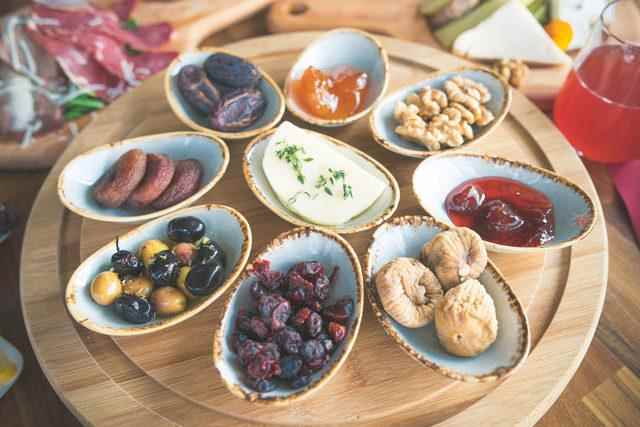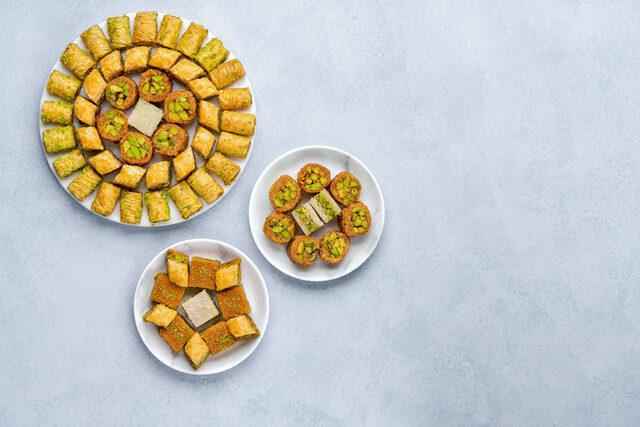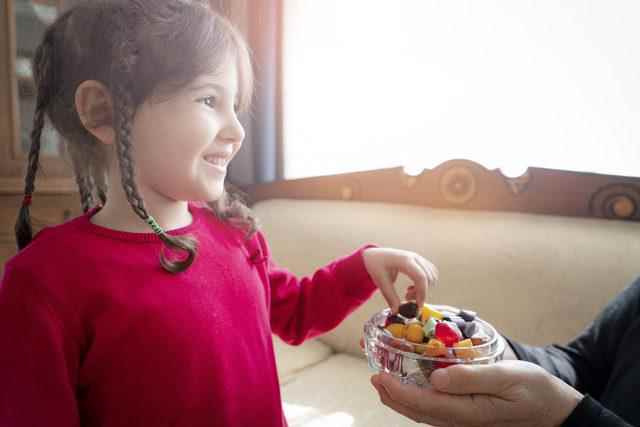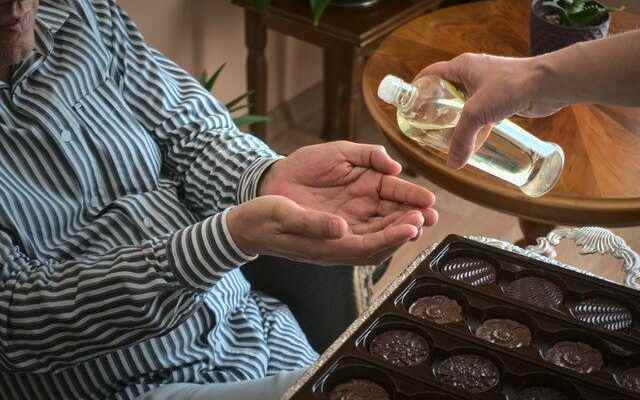Stating that the body, which gets used to a different diet during the fasting period, may encounter negative tables, especially with the increase in sugar and red meat-based menu consumption and uncontrolled nutrition, together with the Ramadan Feast, experts said, “The sudden increase in meat, fat and sweet consumption according to the routine diet, palpitations, blood pressure. may cause high blood sugar levels. They warned that the cholesterol content in red meat is high, so diabetes, cardiovascular and hypertension patients should not overdo their consumption of sugar, syrup and meat.
AVOID DESSERTS WITH SHERBET
Avoid Dessert with Sherbet: Emphasizing that an important issue in food consumption during the feast is the consumption of sweets, Uzm. Dr. Safiye Arık said that especially patients with diabetes should avoid sweet desserts with syrup, if possible, they should prefer less sugary, milky and natural sweets during Eid visits. exp. Dr. Arık said, “In order to maintain blood sugar control, low-sugar ice cream or fruit should be preferred for dessert consumption, and ayran, low-sugar compote or herbal teas should be consumed as beverages.”
exp. Dr. Safiye Arık emphasized that during the feast, a conscious nutrition program, attention to the balance of breakfast and snacks, exercise and walking should be given importance so that the food does not disturb the digestive system.
SHOULD NOT SWITCH TO DENSE NUTRITION
Stating that the decrease in the number of meals and changes in eating habits due to fasting during the month of Ramadan may cause a tendency to eat more while switching to a normal eating pattern during the feast, Nutrition and Dietetics Specialist Dyt. Deniz Pirçek said, “At the end of Ramadan, the amount of food to be consumed should not be suddenly increased; between meals should be arranged to be 2 at most 4-5 hours. The day should start with breakfast, which is the most important meal on the morning of the feast. Foods cooked by frying and roasting method should not be consumed for breakfast. For breakfast, a healthy breakfast should be made by choosing cheese, eggs, olives, walnuts, tomatoes, a small amount of honey, homemade jam, cucumbers and plenty of greens.

Processed meats such as sausage, sausage, salami and pastries such as börek and pastry should be avoided. Food should be chewed abundantly, meals should not be consumed quickly. If dessert is to be consumed, milky desserts should be preferred instead of sherbet and pastry desserts. Herbal teas, plain mineral water, ayran, kefir, homemade low-sugar lemonades can be preferred instead of acidic beverages. Vegetables, fruits and legumes with high fiber (pulp) content should be consumed for the regular functioning of the digestive system and to prevent constipation. Those who have chronic diseases such as diabetes-cardiovascular diseases and high blood pressure should take care to comply with their diet during the holiday period. Our unchangeable rules for a healthy body, water consumption and movement should not be neglected. At least 2-2.5 liters of fluid should be taken per day; Care should be taken to walk for 30-35 minutes during the day,” he said.
ATTENTION TO DIGITAL SYSTEM PROBLEMS
Emphasizing that some changes can occur in the body due to long-term hunger and thirst in Ramadan, Uzm. Dr. Ayşegül Öziş said, “While changes in food consumption increase the tendency to constipation, eating fast food and loading the stomach at once can cause an increase in gastritis, ulcer and reflux complaints. Foods such as candy, chocolate and pastries served during the holiday are foods that increase blood sugar rapidly and have high energy content. Consuming these foods frequently during the holiday can cause digestive system problems and rapid rise in blood sugar, leading to various ailments.

Food should be chewed well and eaten slowly, little by little. It should not be forgotten that the increased consumption of tea and coffee due to the holiday does not replace water, it throws water out of the body, and it should not be neglected to drink water with every tea and coffee you drink. Vegetables, fruits and legumes with high fiber and fiber content should be consumed for the regular functioning of the digestive system and to prevent constipation. These foods also prevent blood sugar from rising rapidly. In order not to cause reflux problems, nothing should be eaten 2 hours before going to bed, and not even water should be drunk for the last hour as much as possible.
ATTENTION TO THOSE WITH CHRONIC DISEASE
Physicians also underlined that those with chronic diseases such as diabetes, cardiovascular diseases, high blood pressure and kidney diseases should pay attention to their diet during the feast. Experts stated that at least 2-2.5 liters of fluid should be taken per day to replace the fluid loss that may occur in the body due to the decrease in water and fluid consumption during Ramadan; they said that in order to increase fluid consumption, liquid foods such as water, ayran, low sugar lemonade, low sugar/sugar-free compote/hosaf can be consumed. In addition, the experts emphasized that the elderly and people with blood pressure patients should consume beverages with high caffeine content such as tea and coffee in large quantities throughout the day, and stated that the habit of eating at night should be prevented by returning to the pre-Ramadan order in the sleep pattern.

Here are the nutrition recommendations of the experts during the holiday:
- You should chew the bites very well in order to create a feeling of fullness and to reduce the load on the stomach.
- You should be careful to drink plenty of water. The need for water should not be met with tea or similar liquids.
- You should avoid fried foods.
- Instead of pastry desserts, you should prefer milk desserts, ice cream and fruit desserts as much as possible.
- Due to Ramadan, you should not eat irregularly with the complacency of being at home, and you should stay away from junk food and fast food.
- You should prefer smaller portions and feed frequently and less.
- Make sure your dinner is light.
- It would be healthier to gradually return to our old eating habits after leaving the fast. While fasting, eating 4-5 meals, which is like 2-3 meals, will relieve the stomach with small meals such as fruit in between, and will also prevent you from getting very hungry during the next meal and will make you more comfortable.
- Diabetics, chronic kidney patients, those with cholesterol and blood pressure problems should be careful. We can provide lighter, more suitable food alternatives to their diets, without insisting that they eat.
- Prevent your children from eating too much sugar and chocolate, getting empty energy and losing their appetite for the main meal.
- Include salad, vegetables and fruit in your meals to regulate your bowel movements.
